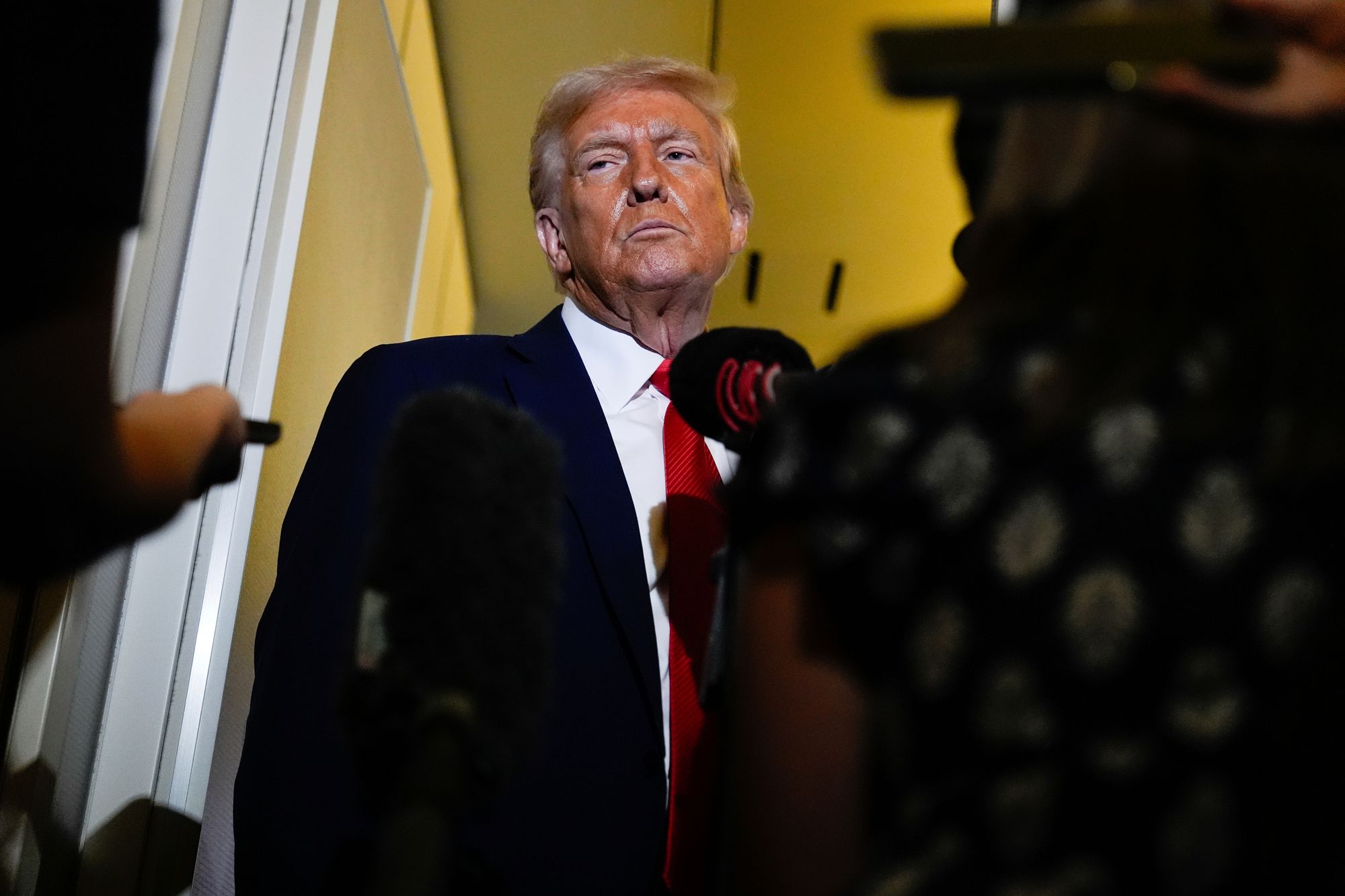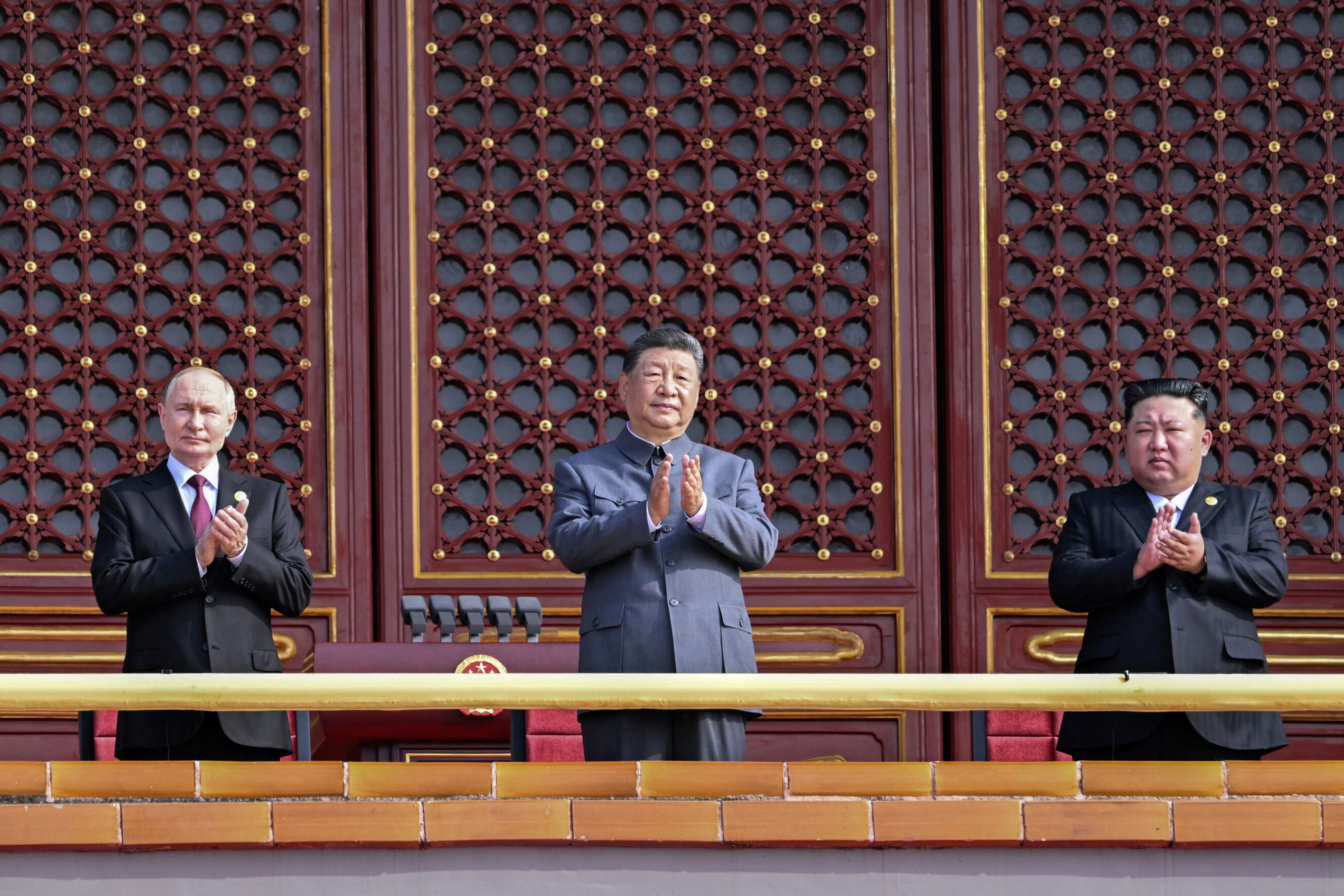Every year, the United Nations General Assembly gathers for high-level talks, and high-minded proclamations full of sound and fury, signifying... not very much.
As the British delegation arrived in New York, there was a desperate attempt to save the international talking shop from being drowned out by the national self-interest of America at this year’s gathering.
On her arrival, Yvette Cooper, the new UK foreign secretary, laid out Britain’s principles for the future.
“At this moment of intense global instability and conflict, UK diplomacy and leadership has never been more important. Innocent civilians are suffering in Gaza, Ukraine and Sudan,” she said.
Donald Trump doesn’t care. He’s signalled that he has no interest in Sudan. He supports Israel on Gaza, and seemingly Vladimir Putin on Ukraine. When it comes to UN votes, Trump has consistently sided with Israel and Russia against his Western allies.

“Countries worldwide are dealing with high levels of migration, including displaced and trafficked people,” she went on. Trump agrees – and is using the fear of immigrants as a lever to intimidate people on the streets of America.
“And climate change is not just a future threat to our survival, but a source of chaos and suffering across every continent today,” said the UK’s foreign secretary. She’s absolutely right. But Trump has abandoned every aspect of the Paris climate agreement, and is pursuing “drill, baby, drill” with unbound enthusiasm, advocating the expansion of fossil-fuel use worldwide.
He is leaving the world open to the startling reality that, as the US abandons the UN, China (one of the five permanent members of the UN Security Council) can shape it on the cheap.
This year, the US has withdrawn from the UN Human Rights Council (UNHRC) and the UN Educational, Scientific and Cultural Organisation (Unesco). And cut funding to most others. US funding has been slashed from $1.5bn (£1.1bn) to $300m (£222m) a year.
The UN, meanwhile, is facing a $500m shortfall in 2026, with at least 3,000 staff expected to lose their jobs.
China has continued to increase its financial contributions to the UN. As of 2025, China has pledged to give $500m to the World Health Organisation (WHO) over five years, and is the second-largest contributor to the UN’s regular budget, contributing more than 15 per cent.
While the US is determined to unravel the fabric of multilateralism, China is equally focused on establishing long-term global alliances, and is facing no serious rival in doing so.
It has bound itself tightly into the affairs and economies of the African continent as the biggest investor in infrastructure. North Korea and Russia were each given a place of honour at a recent parade in Beijing to mark the 80th anniversary of the end of the Second World War. The signs are that, while the US stands back from the world, China is happy to embrace all comers.
There are indications, however, that the UK and the European Union may be trying to build an alternative Western bloc of influence, along with Canada and Australia, to offset the influence of China and the loss of American money (and leadership) in the UN.
Nato, which includes EU members along with Canada, has already been shaken by Trump’s lack of enthusiasm for the multinational alliance, and because he has shown greater support for its biggest threat, Putin, than he has for his own allies.
Encouraged by the White House, these allies are now heading towards spending 3.5 per cent, rising to perhaps even 5 per cent, of their GDP on defence. That increase, ironically, reduces US influence within the alliance, where European militaries are hastening their efforts to grow independent of the American military machine.
The same waning of US power is visible in the UN.

In the latest developments, the UK, Australia, and Canada have all recognised the Palestinian state – over the vocal objections of the Trump administration, which sees the move as a reward for Hamas’s campaigns against the existence of Israel.
The UK has done so, the Foreign Office said, as part of its efforts to build an international consensus – being galvanised by Saudi Arabia and France – around efforts to revive the “two-state solution”. The hope is to see Israel and the Palestinians – the latter led by the new state but not the proscribed Hamas group – return to talks that would lead to the end of Israel’s occupation of the West Bank, and peace for Gaza.
Over the coming week, the UN plenary sessions will no doubt be used by Trump to advance his claims to have earned several nominations for the Nobel Peace Prize for his (unsuccessful) attempts to bring peace to seven conflicts, by his count.
Sergei Lavrov, Russia’s foreign minister, will try to slap away efforts by Ukraine’s Volodymyr Zelensky on Wednesday to call for UN support in condemning Russia and demanding a ceasefire.
Trump’s administration is unlikely to make good on threats to increase sanctions against the Kremlin, and may even duck offering outright support to Kyiv.
China will take an authoritative stand and cement itself as the keystone in the most multilateral institution of them all – while hiding its designs on Taiwan.
The French and the Saudis, along with the Arab League, will work hard for Palestine, and all – bar the US delegation – will anxiously talk of renewing their commitment to cooling the climate.
Britain, though, won’t get top billing, or even be taken too seriously. Because the prime minister of the United Kingdom is not bothering to help to preserve multilateralism. He hasn’t turned up.







